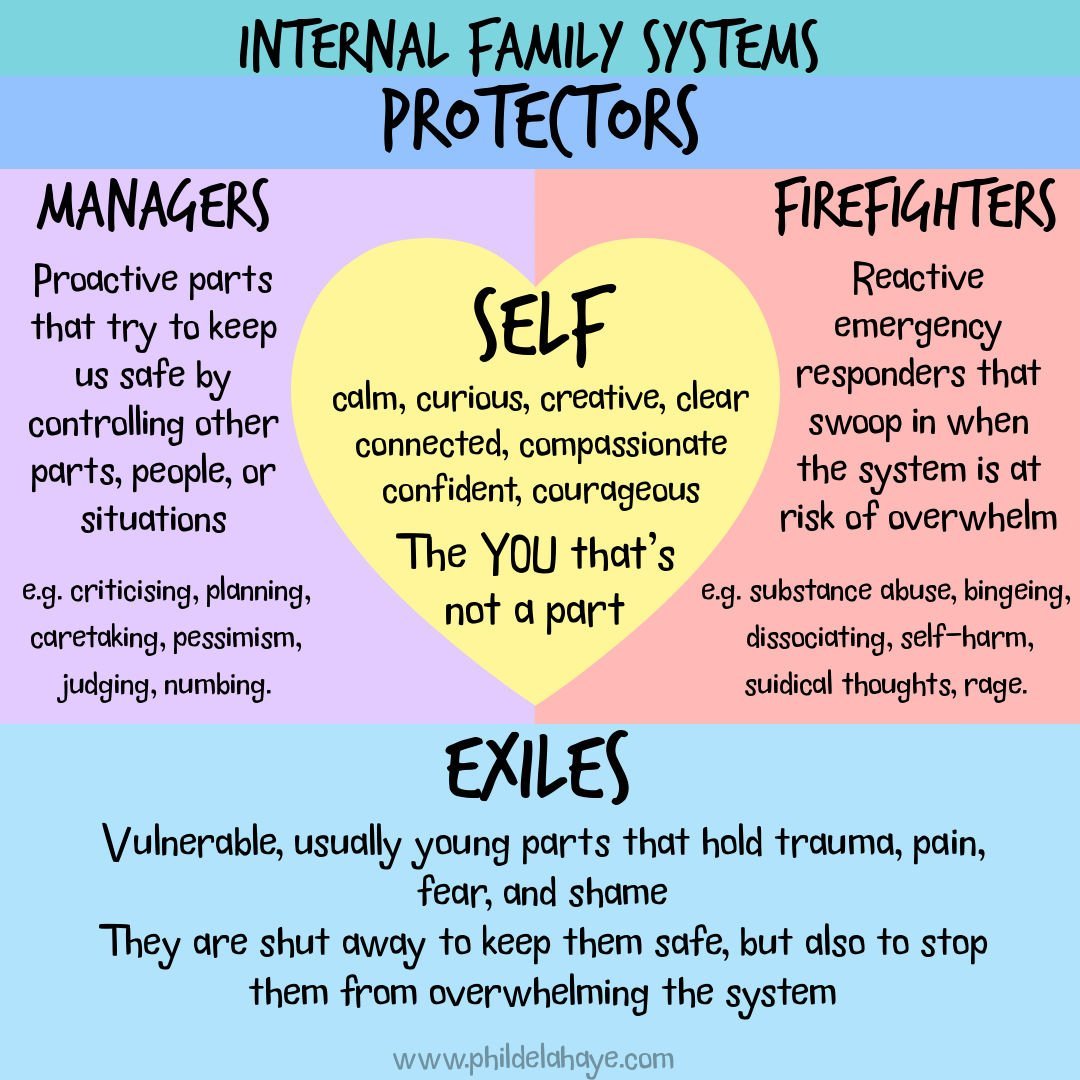Internal Family Systems
Internal Family Systems (IFS): Healing the Inner Ecosystem
"You are not broken. You are beautifully, brilliantly fragmented."
Do you ever feel like different parts of you are constantly battling inside? One part pushes you to achieve, another collapses from exhaustion. One part yearns for connection, another sabotages it to stay safe. If so, you are not alone.
Internal Family Systems (IFS) therapy offers a revolutionary understanding: your mind is not a single entity, but a complex, intelligent ecosystem of "parts." These parts are not symptoms; they are distinct aspects of your personality, each with its own beliefs, feelings, and history—shaped by your life experiences.
Central to IFS is the concept of the "Self"—your innate core of wisdom, compassion, courage, and calm. This is the True You, buried beneath the noise of your inner critics and the defenses of your protectors. The goal of IFS is to help you access this Self-energy so you can lead your internal family with clarity and love.
Understanding Your Inner System
Every part, even those that seem problematic (like an inner critic or a self-saboteur), has a positive intention. They developed to protect you, especially during times of trauma.
The Anxious Part might be trying to warn you of danger.
The Angry Part might be fighting for justice.
The Addicted Part might be trying to numb an unbearable pain.
By listening to these parts with curiosity and compassion (rather than judgment), we understand their motivations. This allows us to heal the underlying wounds and help these parts transform from extreme, protective roles into valued members of your internal system.
Why IFS Resonates for Complex Survivors & Neurodivergent Minds
For those who've navigated complex trauma, high-masking neurodivergence, or deep-seated internal conflicts, IFS provides an invaluable roadmap:
Healing the Fragmented Self: It acknowledges the reality of feeling "not whole" after trauma, providing a gentle path to integration.
Unmasking Authenticity: It helps you understand and release the parts that developed to mask your true self, allowing you to live more authentically.
Empowering Autonomy: You learn to lead your own internal system, reducing the feeling of being "hijacked" by overwhelming emotions or compulsions.
Our Approach: Integrating IFS for Wholeness
Integrating IFS with other therapeutic modalities amplifies its effectiveness. We don't just talk about your parts; we experience them in your body and help them release their burdens.
EMDR (Eye Movement Desensitization and Reprocessing): Aids in reprocessing traumatic memories held by exiled parts.
Somatic Experiencing (SE) & Trauma Release Exercises (TRE): Focus on releasing the physical manifestations of trauma held by your parts.
This holistic journey allows you to reconnect with your inherent wisdom, foster radical self-compassion, and achieve a deeply integrated identity. As you learn to navigate your internal landscape, you will experience a profound sense of connection not only with yourself but in all your relationships.


